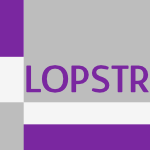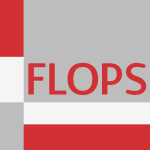81 papers:
 TLCA-2015-Pientka0 #recursion
TLCA-2015-Pientka0 #recursion- Well-Founded Recursion over Contextual Objects (BP, AA), pp. 273–287.
 CASE-2014-MatsumotoY #3d #classification #framework #image
CASE-2014-MatsumotoY #3d #classification #framework #image- An object classification framework based on unmeasurable area patterns found in 3D range images (KM, KY), pp. 242–248.
 MSR-2014-SainiSOL #dataset #debugging
MSR-2014-SainiSOL #dataset #debugging- A dataset for maven artifacts and bug patterns found in them (VS, HS, JO, CVL), pp. 416–419.
 FM-2014-BaiHWLLM #formal method #model checking #named #towards
FM-2014-BaiHWLLM #formal method #model checking #named #towards- TrustFound: Towards a Formal Foundation for Model Checking Trusted Computing Platforms (GB, JH, JW, YL, ZL, AM), pp. 110–126.
 FM-2014-HayesM #algebra #invariant #realtime
FM-2014-HayesM #algebra #invariant #realtime- Invariants, Well-Founded Statements and Real-Time Program Algebra (IJH, LM), pp. 318–334.
 SEFM-2014-MotaFDW #agile #model checking #prototype #semantics
SEFM-2014-MotaFDW #agile #model checking #prototype #semantics- Rapid Prototyping of a Semantically Well Founded Circus Model Checker (AM, AF, AD, JW), pp. 235–249.
 KR-2014-DeneckerV #induction #principle #revisited #semantics
KR-2014-DeneckerV #induction #principle #revisited #semantics- The Well-Founded Semantics Is the Principle of Inductive Definition, Revisited (MD, JV).
 LOPSTR-2014-ChowdhuryLCKY #approximate #case study #logic programming #polynomial #semantics #source code
LOPSTR-2014-ChowdhuryLCKY #approximate #case study #logic programming #polynomial #semantics #source code- Polynomial Approximation to Well-Founded Semantics for Logic Programs with Generalized Atoms: Case Studies (MSC, FL, WC, AK, JHY), pp. 279–296.
 ICLP-J-2014-TachmazidisAF #big data #performance #semantics
ICLP-J-2014-TachmazidisAF #big data #performance #semantics- Efficient Computation of the Well-Founded Semantics over Big Data (IT, GA, WF), pp. 445–459.
 RTA-TLCA-2014-BerardiS #theorem
RTA-TLCA-2014-BerardiS #theorem- Ramsey Theorem as an Intuitionistic Property of Well Founded Relations (SB, SS), pp. 93–107.
 PODS-2013-HernichKLG #datalog #ontology #reasoning #semantics
PODS-2013-HernichKLG #datalog #ontology #reasoning #semantics- Well-founded semantics for extended datalog and ontological reasoning (AH, CK, TL, GG), pp. 225–236.
 ESOP-2013-JeanninKS
ESOP-2013-JeanninKS- Language Constructs for Non-Well-Founded Computation (JBJ, DK, AS), pp. 61–80.
 EDOC-2013-AzevedoIASPG #modelling #ontology
EDOC-2013-AzevedoIASPG #modelling #ontology- An Ontology-Based Well-Founded Proposal for Modeling Resources and Capabilities in ArchiMate (CLBA, MEI, JPAA, MvS, LFP, GG), pp. 39–48.
 ICLP-J-2013-AzizCS #bound #semantics
ICLP-J-2013-AzizCS #bound #semantics- Stable model semantics for founded bounds (RAA, GC, PJS), pp. 517–532.
 ASE-2012-JacobsonSJK #re-engineering
ASE-2012-JacobsonSJK #re-engineering- Re-founding software engineering — SEMAT at the age of three (keynote abstract) (IJ, IS, PJ, MKM), pp. 15–19.
 CHI-2012-PetrieP #comparison #interactive #problem #usability #what
CHI-2012-PetrieP #comparison #interactive #problem #usability #what- What do users really care about?: a comparison of usability problems found by users and experts on highly interactive websites (HP, CP), pp. 2107–2116.
 ICLP-2012-YouMB #semantics #source code
ICLP-2012-YouMB #semantics #source code- Reconciling Well-Founded Semantics of DL-Programs and Aggregate Programs (JHY, JM, YB), pp. 235–246.
 ICST-2012-Oriol #evaluation #fault #random testing #testing
ICST-2012-Oriol #evaluation #fault #random testing #testing- Random Testing: Evaluation of a Law Describing the Number of Faults Found (MO), pp. 201–210.
 CSEET-2011-BromanS #how #question #re-engineering #student
CSEET-2011-BromanS #how #question #re-engineering #student- How can we make software engineering text books well-founded, up-to-date, and accessible to students? (DB, KS), pp. 386–390.
 DUXU-v1-2011-BuettnerS #how #mobile #web
DUXU-v1-2011-BuettnerS #how #mobile #web- Mobile Web and Native Apps: How One Team Found a Happy Medium (KB, AMS), pp. 549–554.
 PPDP-2011-SchernhammerM #axiom #incremental #recursion #specification
PPDP-2011-SchernhammerM #axiom #incremental #recursion #specification- Incremental checking of well-founded recursive specifications modulo axioms (FS, JM), pp. 5–16.
 ICPR-2010-SenkoK #clustering #pattern matching #pattern recognition #recognition #using
ICPR-2010-SenkoK #clustering #pattern matching #pattern recognition #recognition #using- Pattern Recognition Method Using Ensembles of Regularities Found by Optimal Partitioning (OVS, AVK), pp. 2957–2960.
 SAC-2010-ChoppyR #approach #modelling
SAC-2010-ChoppyR #approach #modelling- A well-founded approach to service modelling with Casl4Soa: part 1 (service in isolation) (CC, GR), pp. 2451–2458.
 ICLP-2009-Swift #modelling
ICLP-2009-Swift #modelling- An Engine for Computing Well-Founded Models (TS), pp. 514–518.
 SIGMOD-2008-HarizopoulosAMS #what
SIGMOD-2008-HarizopoulosAMS #what- OLTP through the looking glass, and what we found there (SH, DJA, SM, MS), pp. 981–992.
 SEKE-2008-TubiioLR #bibliography #elicitation #perspective
SEKE-2008-TubiioLR #bibliography #elicitation #perspective- Obtaining Well-Founded Practices about Elicitation Techniques by Means of an Update of a Previous Systematic Review (ÓDT, ML, FR), pp. 769–772.
 ICLP-2008-Riguzzi #logic programming #semantics #source code
ICLP-2008-Riguzzi #logic programming #semantics #source code- Inference with Logic Programs with Annotated Disjunctions under the Well Founded Semantics (FR), pp. 667–671.
 DLT-2006-KountouriotisNR #boolean grammar #semantics
DLT-2006-KountouriotisNR #boolean grammar #semantics- Well-Founded Semantics for Boolean Grammars (VK, CN, PR), pp. 203–214.
 KR-2006-CabalarOP #logic #semantics
KR-2006-CabalarOP #logic #semantics- Logical Foundations of Well-Founded Semantics (PC, SPO, DP), pp. 25–35.
 POPL-2006-LahiriQ #verification
POPL-2006-LahiriQ #verification- Verifying properties of well-founded linked lists (SKL, SQ), pp. 115–126.
 SAC-2006-BaldoniBT #java #named #object-oriented #programming language
SAC-2006-BaldoniBT #java #named #object-oriented #programming language- powerJava: ontologically founded roles in object oriented programming languages (MB, GB, LWNvdT), pp. 1414–1418.
 ICLP-2006-CabalarOPV #equilibrium #logic #semantics #using
ICLP-2006-CabalarOPV #equilibrium #logic #semantics #using- Analysing and Extending Well-Founded and Partial Stable Semantics Using Partial Equilibrium Logic (PC, SPO, DP, AV), pp. 346–360.
 ICLP-2006-WittocxVMDB #semantics
ICLP-2006-WittocxVMDB #semantics- Predicate Introduction Under Stable and Well-Founded Semantics (JW, JV, MM, MD, MB), pp. 242–256.
 ICLP-2005-AlcantaraDP #semantics
ICLP-2005-AlcantaraDP #semantics- A Well-Founded Semantics with Disjunction (JA, CVD, LMP), pp. 341–355.
 ICLP-2005-NomikosRW #equivalence #semantics
ICLP-2005-NomikosRW #equivalence #semantics- A Sufficient Condition for Strong Equivalence Under the Well-Founded Semantics (CN, PR, WWW), pp. 414–415.
 HT-2004-HorieY #analysis #documentation #set #using #web
HT-2004-HorieY #analysis #documentation #set #using #web- Structural analysis for web documentation using the non-well-founded set (IH, KY), pp. 42–43.
 CAiSE-2004-GuizzardiWGMR #concept #modelling #uml
CAiSE-2004-GuizzardiWGMR #concept #modelling #uml- An Ontologically Well-Founded Profile for UML Conceptual Models (GG, GW, NG, MvS), pp. 112–126.
 ICEIS-v3-2004-Douglas #analysis #enterprise #performance
ICEIS-v3-2004-Douglas #analysis #enterprise #performance- Founding Enterprise Systems on Enterprise Performance Analysis (ID), pp. 588–591.
 POPL-2004-Dreyer #recursion #type system
POPL-2004-Dreyer #recursion #type system- A type system for well-founded recursion (DD), pp. 293–305.
 SEFM-2003-AstesianoR #development #towards #uml
SEFM-2003-AstesianoR #development #towards #uml- Towards a Well-Founded UML-Based Development Method (EA, GR), p. 102–?.
 FLOPS-2002-LoyerS #logic programming #nondeterminism #semantics #source code
FLOPS-2002-LoyerS #logic programming #nondeterminism #semantics #source code- The Well-Founded Semantics in Normal Logic Programs with Uncertainty (YL, US), pp. 152–166.
 ICLP-2002-Cabalar #semantics
ICLP-2002-Cabalar #semantics- A Rewriting Method for Well-Founded Semantics with Explicit Negation (PC), pp. 378–392.
 CIKM-2001-JonesBD #web
CIKM-2001-JonesBD #web- Keeping Found Things Found on the Web (WPJ, HB, STD), pp. 119–126.
 CSL-2001-Goubault-Larrecq #recursion
CSL-2001-Goubault-Larrecq #recursion- Well-Founded Recursive Relations (JGL), pp. 484–497.
 ICLP-2001-DeneckerPB #logic programming #semantics #source code
ICLP-2001-DeneckerPB #logic programming #semantics #source code- Ultimate Well-Founded and Stable Semantics for Logic Programs with Aggregates (MD, NP, MB), pp. 212–226.
 IJCAR-2001-Wang #semantics #top-down
IJCAR-2001-Wang #semantics #top-down- A Top-Down Procedure for Disjunctive Well-Founded Semantics (KW), pp. 305–317.
 CADE-2000-Meier #proving
CADE-2000-Meier #proving- System Description: TRAMP: Transformation of Machine-Found Proofs into ND-Proofs at the Assertion Level (AM), pp. 460–464.
 CL-2000-LoncT #on the #problem #semantics
CL-2000-LoncT #on the #problem #semantics- On the Problem of Computing the Well-Founded Semantics (ZL, MT), pp. 673–687.
 CAV-1999-ManoliosNS #bisimulation #model checking #proving #theorem proving
CAV-1999-ManoliosNS #bisimulation #model checking #proving #theorem proving- Linking Theorem Proving and Model-Checking with Well-Founded Bisimulation (PM, KSN, RS), pp. 369–379.
 CSL-1999-HagiharaY #logic
CSL-1999-HagiharaY #logic- Resolution Method for Modal Logic with Well-Founded Frames (SH, NY), pp. 277–291.
 ICLP-1999-AlferesPS #abduction #source code
ICLP-1999-AlferesPS #abduction #source code- Well-founded Abduction via Tabled Dual Programs (JJA, LMP, TS), pp. 426–440.
 ICLP-1999-ZukowskiF #semantics
ICLP-1999-ZukowskiF #semantics- Well-founded Semantics by Transformation: The Non-ground Case (UZ, BF), pp. 456–470.
 TLCA-1999-Berardid
TLCA-1999-Berardid- Total Functionals and Well-Founded Strategies (SB, Ud), pp. 54–68.
 KR-1998-BrassDNP #comparison #implementation #semantics
KR-1998-BrassDNP #comparison #implementation #semantics- A Comparison of the Static and the Disjunctive Well-Founded Semantics and its Implementation (SB, JD, IN, TCP), pp. 74–85.
 ICLP-1997-ZukowskiF #bottom-up #difference #semantics
ICLP-1997-ZukowskiF #bottom-up #difference #semantics- Differential Bottom-Up Computation of the Well-Founded Semantics (UZ, BF, SB), p. 421.
 CADE-1996-HuangF #proving
CADE-1996-HuangF #proving- Presenting Machine-Found Proofs (XH, AF), pp. 221–225.
 JICSLP-1996-NiemelaS #implementation #performance #semantics
JICSLP-1996-NiemelaS #implementation #performance #semantics- Efficient Implementation of the Well-founded and Stable Model Semantics (IN, PS), pp. 289–303.
 JICSLP-1996-SagonasSW #automaton #semantics
JICSLP-1996-SagonasSW #automaton #semantics- An Abstract Machine for Computing the Well-Founded Semantics (KFS, TS, DSW), pp. 274–288.
 PODS-1993-ChenW #evaluation #query #semantics
PODS-1993-ChenW #evaluation #query #semantics- Query Evaluation under the Well Founded Semantics (WC, DSW), pp. 168–179.
 ILPS-1993-BolD #semantics
ILPS-1993-BolD #semantics- Tabulated Resolution for Well Founded Semantics (RNB, LD), pp. 199–219.
 ILPS-1993-ChenSW #evaluation
ILPS-1993-ChenSW #evaluation- Goal-Directed Evaluation of Well-Founded Sematics for XSB (WC, TS, DSW), p. 679.
 ILPS-1993-SudarshanSRB #semantics
ILPS-1993-SudarshanSRB #semantics- Extending the Well-Founded and Valid Semantics for Aggregation (SS, DS, RR, CB), pp. 590–608.
 PODS-1992-Gelder #semantics
PODS-1992-Gelder #semantics- The Well-Founded Semantics of Aggregation (AVG), pp. 127–138.
 SEI-1992-WardleL
SEI-1992-WardleL- Current Founding Opportunities Through the National Science Foundations (CEW, DKL), pp. 415–416.
 ALP-1992-AravindanD #deduction #logic programming #semantics #source code
ALP-1992-AravindanD #deduction #logic programming #semantics #source code- Partial Deduction of Logic Programs wrt Well-Founded Semantics (CA, PMD), pp. 384–402.
 CADE-1992-CaferraD #logic #proving #semantics
CADE-1992-CaferraD #logic #proving #semantics- Semantic Entailment in Non Classical Logics Based on Proofs Found in Classical Logic (RC, SD), pp. 385–399.
 JICSLP-1992-ChenW #approach #semantics
JICSLP-1992-ChenW #approach #semantics- A Goal-Oriented Approach to Computing Well Founded Semantics (WC, DSW), pp. 589–603.
 ICLP-1991-HuY #logic programming #semantics #source code
ICLP-1991-HuY #logic programming #semantics #source code- Extended Well-Founded Model Semantics for General Logic Programs (YH, LYY), pp. 412–425.
 ICLP-1991-PereiraAA #reasoning #semantics
ICLP-1991-PereiraAA #reasoning #semantics- Nonmonotonic Reasoning with Well Founded Semantics (LMP, JNA, JJA), pp. 475–489.
 ICLP-1991-Przymusinski #logic programming #source code
ICLP-1991-Przymusinski #logic programming #source code- Well-Founded Completions of Logic Programs (TCP), pp. 726–741.
 ISLP-1991-Fitting #semantics
ISLP-1991-Fitting #semantics- Well-Founded Semantics, Generalized (MF), pp. 71–84.
 ISLP-1991-KempSS #bottom-up #evaluation #modelling #set
ISLP-1991-KempSS #bottom-up #evaluation #modelling #set- Magic Sets and Bottom-Up Evaluation of Well-Founded Models (DBK, DS, PJS), pp. 337–351.
 CADE-1990-BaralLM #logic programming #semantics #source code
CADE-1990-BaralLM #logic programming #semantics #source code- Generalized Well-founded Semantics for Logic Programs (Extended Abstract) (CB, JL, JM), pp. 102–116.
 CLP-1990-Fages90 #fixpoint #logic programming #semantics #source code
CLP-1990-Fages90 #fixpoint #logic programming #semantics #source code- A New Fixpoint Semantics for General Logic Programs Compared with the Well-Founded and the Stable Model Semantics (FF), pp. 441–458.
 PODS-1989-Ross #logic programming #semantics #source code
PODS-1989-Ross #logic programming #semantics #source code- A Procedural Semantics for Well Founded Negation in Logic Programs (KAR), pp. 22–33.
 ML-1989-Gaines #data-driven #database #empirical #induction #statistics #trade-off
ML-1989-Gaines #data-driven #database #empirical #induction #statistics #trade-off- An Ounce of Knowledge is Worth a Ton of Data: Quantitative studies of the Trade-Off between Expertise and Data Based On Statistically Well-Founded Empirical Induction (BRG), pp. 156–159.
 LICS-1989-Fernando #on the #recursion #set
LICS-1989-Fernando #on the #recursion #set- On Substitutional Recursion Over Non-Well-Founded Sets (RTPF), pp. 273–282.
 LICS-1989-MisloveMO #fixpoint #set
LICS-1989-MisloveMO #fixpoint #set- Non-Well-Founded Sets Obtained from Ideal Fixed Points (MWM, LSM, FJO), pp. 263–272.
 PODS-1988-GelderRS #logic programming #semantics #set #source code
PODS-1988-GelderRS #logic programming #semantics #set #source code- Unfounded Sets and Well-Founded Semantics for General Logic Programs (AVG, KAR, JSS), pp. 221–230.
 STOC-1988-Kilian #encryption
STOC-1988-Kilian #encryption- Founding Cryptography on Oblivious Transfer (JK), pp. 20–31.
 SIGFIDET-1971-Codd #calculus #database #relational
SIGFIDET-1971-Codd #calculus #database #relational- A Database Sublanguage Founded on the Relational Calculus (EFC), pp. 35–68.
 TLCA-2015-Pientka0 #recursion
TLCA-2015-Pientka0 #recursion CASE-2014-MatsumotoY #3d #classification #framework #image
CASE-2014-MatsumotoY #3d #classification #framework #image MSR-2014-SainiSOL #dataset #debugging
MSR-2014-SainiSOL #dataset #debugging FM-2014-BaiHWLLM #formal method #model checking #named #towards
FM-2014-BaiHWLLM #formal method #model checking #named #towards FM-2014-HayesM #algebra #invariant #realtime
FM-2014-HayesM #algebra #invariant #realtime SEFM-2014-MotaFDW #agile #model checking #prototype #semantics
SEFM-2014-MotaFDW #agile #model checking #prototype #semantics KR-2014-DeneckerV #induction #principle #revisited #semantics
KR-2014-DeneckerV #induction #principle #revisited #semantics LOPSTR-2014-ChowdhuryLCKY #approximate #case study #logic programming #polynomial #semantics #source code
LOPSTR-2014-ChowdhuryLCKY #approximate #case study #logic programming #polynomial #semantics #source code ICLP-J-2014-TachmazidisAF #big data #performance #semantics
ICLP-J-2014-TachmazidisAF #big data #performance #semantics RTA-TLCA-2014-BerardiS #theorem
RTA-TLCA-2014-BerardiS #theorem PODS-2013-HernichKLG #datalog #ontology #reasoning #semantics
PODS-2013-HernichKLG #datalog #ontology #reasoning #semantics ESOP-2013-JeanninKS
ESOP-2013-JeanninKS EDOC-2013-AzevedoIASPG #modelling #ontology
EDOC-2013-AzevedoIASPG #modelling #ontology ICLP-J-2013-AzizCS #bound #semantics
ICLP-J-2013-AzizCS #bound #semantics ASE-2012-JacobsonSJK #re-engineering
ASE-2012-JacobsonSJK #re-engineering CHI-2012-PetrieP #comparison #interactive #problem #usability #what
CHI-2012-PetrieP #comparison #interactive #problem #usability #what ICLP-2012-YouMB #semantics #source code
ICLP-2012-YouMB #semantics #source code ICST-2012-Oriol #evaluation #fault #random testing #testing
ICST-2012-Oriol #evaluation #fault #random testing #testing CSEET-2011-BromanS #how #question #re-engineering #student
CSEET-2011-BromanS #how #question #re-engineering #student DUXU-v1-2011-BuettnerS #how #mobile #web
DUXU-v1-2011-BuettnerS #how #mobile #web PPDP-2011-SchernhammerM #axiom #incremental #recursion #specification
PPDP-2011-SchernhammerM #axiom #incremental #recursion #specification ICPR-2010-SenkoK #clustering #pattern matching #pattern recognition #recognition #using
ICPR-2010-SenkoK #clustering #pattern matching #pattern recognition #recognition #using SAC-2010-ChoppyR #approach #modelling
SAC-2010-ChoppyR #approach #modelling ICLP-2009-Swift #modelling
ICLP-2009-Swift #modelling SIGMOD-2008-HarizopoulosAMS #what
SIGMOD-2008-HarizopoulosAMS #what SEKE-2008-TubiioLR #bibliography #elicitation #perspective
SEKE-2008-TubiioLR #bibliography #elicitation #perspective ICLP-2008-Riguzzi #logic programming #semantics #source code
ICLP-2008-Riguzzi #logic programming #semantics #source code DLT-2006-KountouriotisNR #boolean grammar #semantics
DLT-2006-KountouriotisNR #boolean grammar #semantics KR-2006-CabalarOP #logic #semantics
KR-2006-CabalarOP #logic #semantics POPL-2006-LahiriQ #verification
POPL-2006-LahiriQ #verification SAC-2006-BaldoniBT #java #named #object-oriented #programming language
SAC-2006-BaldoniBT #java #named #object-oriented #programming language ICLP-2006-CabalarOPV #equilibrium #logic #semantics #using
ICLP-2006-CabalarOPV #equilibrium #logic #semantics #using ICLP-2006-WittocxVMDB #semantics
ICLP-2006-WittocxVMDB #semantics ICLP-2005-AlcantaraDP #semantics
ICLP-2005-AlcantaraDP #semantics ICLP-2005-NomikosRW #equivalence #semantics
ICLP-2005-NomikosRW #equivalence #semantics HT-2004-HorieY #analysis #documentation #set #using #web
HT-2004-HorieY #analysis #documentation #set #using #web CAiSE-2004-GuizzardiWGMR #concept #modelling #uml
CAiSE-2004-GuizzardiWGMR #concept #modelling #uml ICEIS-v3-2004-Douglas #analysis #enterprise #performance
ICEIS-v3-2004-Douglas #analysis #enterprise #performance POPL-2004-Dreyer #recursion #type system
POPL-2004-Dreyer #recursion #type system SEFM-2003-AstesianoR #development #towards #uml
SEFM-2003-AstesianoR #development #towards #uml FLOPS-2002-LoyerS #logic programming #nondeterminism #semantics #source code
FLOPS-2002-LoyerS #logic programming #nondeterminism #semantics #source code ICLP-2002-Cabalar #semantics
ICLP-2002-Cabalar #semantics CIKM-2001-JonesBD #web
CIKM-2001-JonesBD #web CSL-2001-Goubault-Larrecq #recursion
CSL-2001-Goubault-Larrecq #recursion ICLP-2001-DeneckerPB #logic programming #semantics #source code
ICLP-2001-DeneckerPB #logic programming #semantics #source code IJCAR-2001-Wang #semantics #top-down
IJCAR-2001-Wang #semantics #top-down CADE-2000-Meier #proving
CADE-2000-Meier #proving CL-2000-LoncT #on the #problem #semantics
CL-2000-LoncT #on the #problem #semantics CAV-1999-ManoliosNS #bisimulation #model checking #proving #theorem proving
CAV-1999-ManoliosNS #bisimulation #model checking #proving #theorem proving CSL-1999-HagiharaY #logic
CSL-1999-HagiharaY #logic ICLP-1999-AlferesPS #abduction #source code
ICLP-1999-AlferesPS #abduction #source code ICLP-1999-ZukowskiF #semantics
ICLP-1999-ZukowskiF #semantics TLCA-1999-Berardid
TLCA-1999-Berardid KR-1998-BrassDNP #comparison #implementation #semantics
KR-1998-BrassDNP #comparison #implementation #semantics ICLP-1997-ZukowskiF #bottom-up #difference #semantics
ICLP-1997-ZukowskiF #bottom-up #difference #semantics CADE-1996-HuangF #proving
CADE-1996-HuangF #proving JICSLP-1996-NiemelaS #implementation #performance #semantics
JICSLP-1996-NiemelaS #implementation #performance #semantics JICSLP-1996-SagonasSW #automaton #semantics
JICSLP-1996-SagonasSW #automaton #semantics PODS-1993-ChenW #evaluation #query #semantics
PODS-1993-ChenW #evaluation #query #semantics ILPS-1993-BolD #semantics
ILPS-1993-BolD #semantics ILPS-1993-ChenSW #evaluation
ILPS-1993-ChenSW #evaluation ILPS-1993-SudarshanSRB #semantics
ILPS-1993-SudarshanSRB #semantics PODS-1992-Gelder #semantics
PODS-1992-Gelder #semantics SEI-1992-WardleL
SEI-1992-WardleL ALP-1992-AravindanD #deduction #logic programming #semantics #source code
ALP-1992-AravindanD #deduction #logic programming #semantics #source code CADE-1992-CaferraD #logic #proving #semantics
CADE-1992-CaferraD #logic #proving #semantics JICSLP-1992-ChenW #approach #semantics
JICSLP-1992-ChenW #approach #semantics ICLP-1991-HuY #logic programming #semantics #source code
ICLP-1991-HuY #logic programming #semantics #source code ICLP-1991-PereiraAA #reasoning #semantics
ICLP-1991-PereiraAA #reasoning #semantics ICLP-1991-Przymusinski #logic programming #source code
ICLP-1991-Przymusinski #logic programming #source code ISLP-1991-Fitting #semantics
ISLP-1991-Fitting #semantics ISLP-1991-KempSS #bottom-up #evaluation #modelling #set
ISLP-1991-KempSS #bottom-up #evaluation #modelling #set CADE-1990-BaralLM #logic programming #semantics #source code
CADE-1990-BaralLM #logic programming #semantics #source code CLP-1990-Fages90 #fixpoint #logic programming #semantics #source code
CLP-1990-Fages90 #fixpoint #logic programming #semantics #source code PODS-1989-Ross #logic programming #semantics #source code
PODS-1989-Ross #logic programming #semantics #source code ML-1989-Gaines #data-driven #database #empirical #induction #statistics #trade-off
ML-1989-Gaines #data-driven #database #empirical #induction #statistics #trade-off LICS-1989-Fernando #on the #recursion #set
LICS-1989-Fernando #on the #recursion #set LICS-1989-MisloveMO #fixpoint #set
LICS-1989-MisloveMO #fixpoint #set PODS-1988-GelderRS #logic programming #semantics #set #source code
PODS-1988-GelderRS #logic programming #semantics #set #source code STOC-1988-Kilian #encryption
STOC-1988-Kilian #encryption SIGFIDET-1971-Codd #calculus #database #relational
SIGFIDET-1971-Codd #calculus #database #relational









